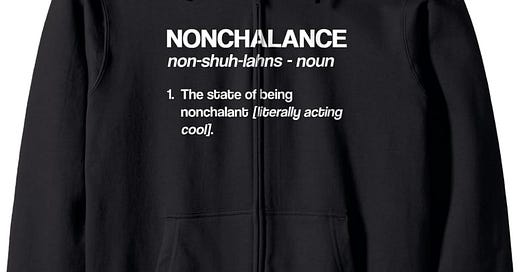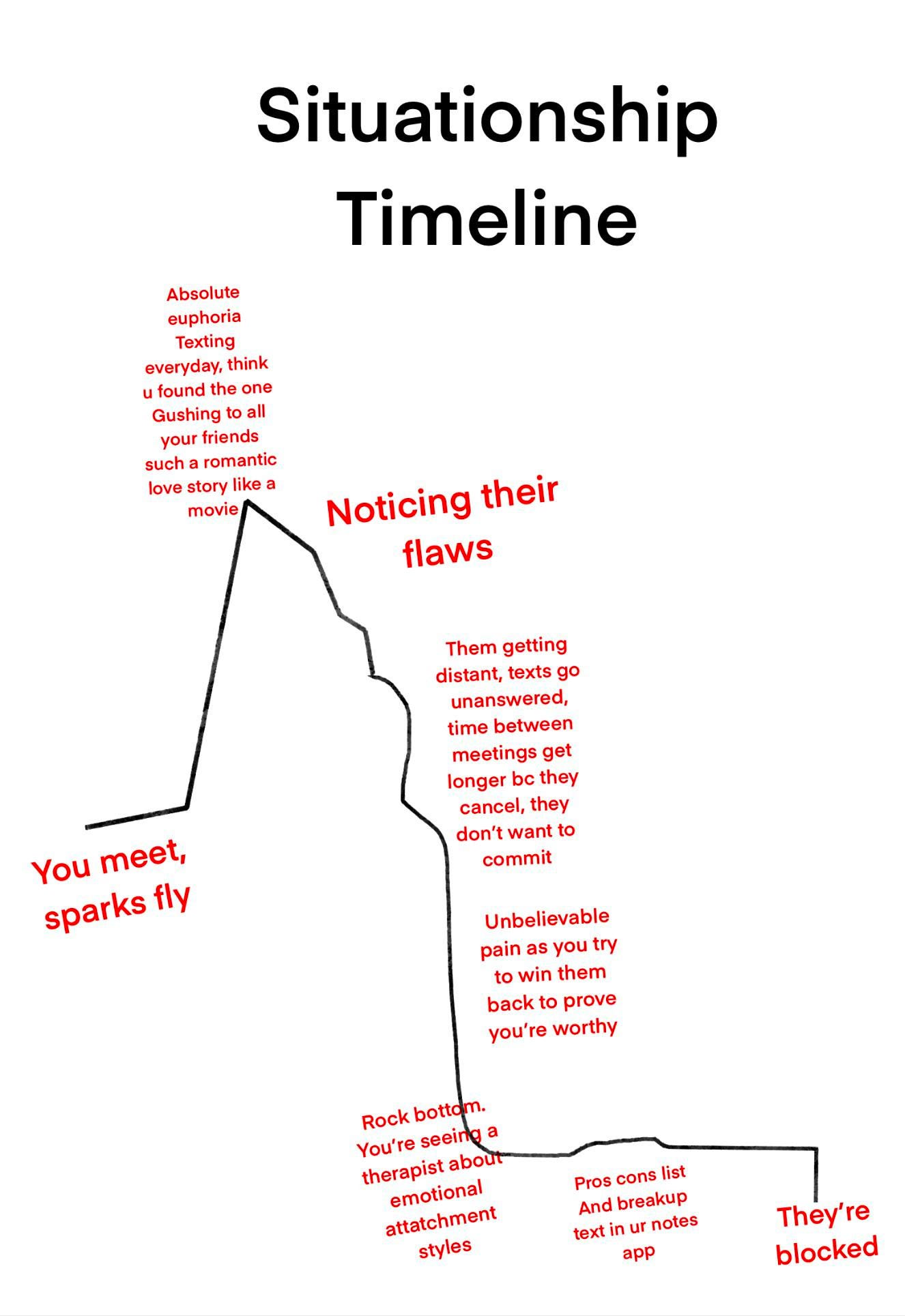The case against nonchalance
The most nonchalant thing you can do is be chalant.
Situationships, talking stages, friends with benefits.
We’re currently living in a label apocalypse.
I even saw something the other day about a textationship??
It seems like our generation has come up with a way to describe and define each and every situation, as long as there’s no commitment involved.
No one wants to be the one to put their foot out forward first because of the risk of falling on your face; after all, who wants to experience rejection?
So, the socially acceptable solution is practicing nonchalance.
We sit and pray that putting in less effort, pretending like we don’t care, and constantly acting unbothered will somehow create the opposite effect—that it’ll make the person we’re interested in suddenly realize what they’re missing out on. That they’ll be drawn in by the mystery, intrigued by the silence, and compelled to chase.
At the same time, we want to keep our options open. The idea of someone you like even looking at another person is sickening, but you still want your own roster.
Everywhere online, you hear about the dreaded ick, and to avoid experiencing it—or worse, giving someone else the ick—it seems easier to act stoic. Better to come off as detached than risk being seen as cringey. Better to play it cool than reveal any kind of earnestness.
But I’d argue it’s gotten to the point where any action that carries even the slightest emotional risk is overanalyzed and overcomplicated on both ends. We dissect and decode text messages, scrutinize tone, read into pauses in conversation, and hold ourselves back from expressing anything real out of fear of doing too much.
If you find yourself defaulting to nonchalance to impress someone, I ask you this: How do you expect them to know how you feel? At what point does the performance of being "unbothered" become more exhausting than just being honest?
Letting yourself be vulnerable can feel like stepping into the unknown, like throwing yourself off a ledge with no guarantee of a soft landing. It’s uncomfortable. It’s terrifying. But it’s also the only way to actually connect.
If you find yourself drawn to someone who comes off as nonchalant, I challenge you to ask yourself: What exactly attracts you to them? Is it them—who they truly are—or is it the mystery? The fact that they’re withholding? And if they always act like they don’t care, how well do you even know them?
Maybe part of the reason vulnerability is so scary is that it makes everything real. The potential of getting hurt becomes tangible. The stakes feel higher. But if both people are too afraid to take that step, where does that leave you? Stuck in a loop of almosts and maybes, never fully knowing what could have been.
So here’s my pitch: Tell that special person how you feel. Let yourself have the uncomfortable, terrifying conversation. Don’t rush to slap a “ship” label onto something just to avoid commitment—or worse, to avoid admitting you care.
The most nonchalant thing you can do, if you really want to show how unbothered you are, is to be completely comfortable with your emotions. To own them. To be honest with yourself and others.
In the end, you’ll thank yourself.






